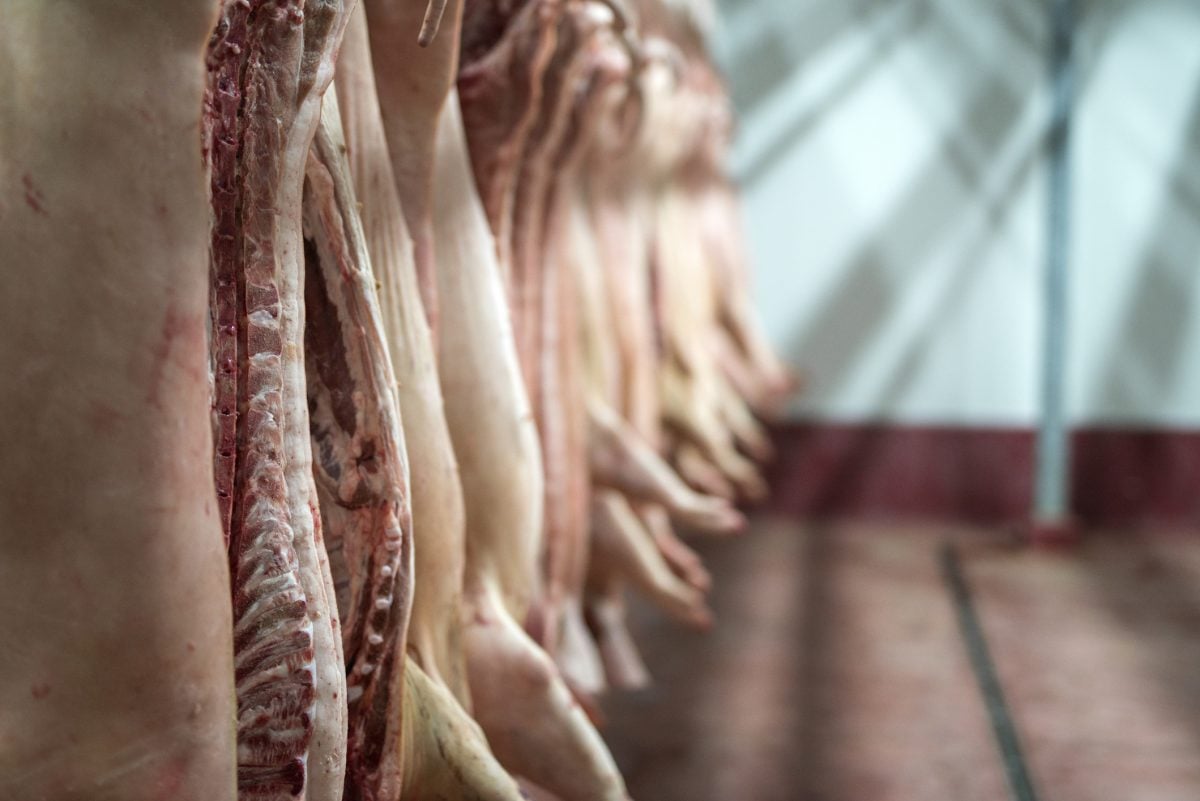The world’s biggest name in tomato ketchup is poised to end its century-old relationship with the southern Ontario municipality of Leamington.
H.J. Heinz Co. announced Thursday it will shut its factory at Leamington, southeast of Windsor, plus two U.S. plants in a “staged process over the next six to eight months” and shift those facilities’ production to other Heinz plants in Canada and the U.S.
The decision will affect 740 Heinz employees at Leamington — as well as tomato growers in the immediate area who will be told the company has no plans to buy from them in the coming season.
Read Also

U.S. livestock: Cattle slip back, hogs gain
Chicago cattle futures slipped back on Friday after Thursday’s pause. Hog futures crept upward. Most-active December live cattle futures closed…
Growers are to find out by Dec. 1 whether the Leamington closure affects them, Heinz said. As of 2011, the company had contracts with 46 independent producers, growing Heinz tomatoes from Heinz seed on about 5,500 acres within 100 km of the community.
Heinz has previously said about 98 per cent of the tomatoes used in Heinz ketchup in Canada are grown in that area, and has described the Leamington plant as its second-largest facility worldwide.
Michael Mullen, Heinz’s senior vice-president of corporate and government affairs, said in a statement the decision to shut the Leamington plant — and two smaller plants at Pocatello, Idaho and Florence, S.C. — has been taken “in order to consolidate manufacturing and eliminate excess capacity.”
Heinz, he said, “will continue to invest in improving capacity utilization and will add 470 employees across five existing factories in Ohio, Iowa, California and Canada.”
The Pittsburgh-based food firm, he said, “fully appreciates and regrets the impact our decision will have on employees and the communities in which these factories are located” but Heinz has “thoroughly explor(ed) extensive alternatives and options.”
Leamington’s relationship with Heinz dates back to 1909, when Henry Heinz chose the town as “the most suitable site” for the first expansion of his operations outside the U.S.
Heinz’s other Ontario plants are at St. Marys and Etobicoke, making retail and foodservice products including ketchup, tomato juice, vinegar, chili sauce, baby foods, canned beans and pastas.
Containers
Heinz was taken over in June by a U.S. investment consortium including Warren Buffett’s Berkshire Hathaway and New York investment firm 3G Capital.
Two months later Heinz announced plans for a major restructuring which it said would result in the reduction of “a number of corporate and field positions across the company’s global business segments.”
Observers outside Heinz, however, see other events in Canada and the U.S. leading up to Thursday’s announcement.
Southern Ontario MP Malcolm Allen, the federal opposition agriculture critic, laid the blame partly on the federal Conservative government for moving to deregulate food container sizes.
The government said in April last year it would repeal regulations that restrict sizes of food containers. Such rules, the government said at the time, are “outdated and limit industry innovation and consumer choices.”
But those container standards, Allen said Thursday, “helped sustain this important sector and these jobs” and are being changed “without a single impact study or consultation.”
The Canadian Food Inspection Agency and Agriculture and Agri-Food Canada said this spring they would consult with industry on the proposed changes.
The day before Heinz’s announcement, Ontario Premier Kathleen Wynne cited warnings from processor groups that deregulating food container sizes would have “dire consequences for the ongoing competitiveness of the food processing and packaging sectors in Canada, including job losses and business closures.”
Wynne cited warnings from groups such as the Ontario Fruit and Vegetable Processors Association, Alliance of Ontario Food Processors and Food Processors of Canada.
Ontario’s Economic Development Minister Eric Hoskins, responding Thursday to Heinz’s announcement, said the federal decision to review regulations around standardized container sizes “has not helped the business environment and, should the proposed changes be implemented, could make the province less attractive to existing companies and potential international investors.”
“Management changes”
Heinz late last month also lost a big ketchup customer when McDonald’s, citing “recent management changes at Heinz,” announced it would move to other ketchup suppliers.
The main management change by the Berkshire/3G consortium was the appointment of Bernardo Hees — a former Burger King CEO — as Heinz’s new chief executive.
A Reuters article on the McDonald’s decision noted it would mostly be felt outside the U.S., where McDonald’s only serves Heinz ketchup in the Pittsburgh and Minneapolis markets, Reuters quoted the Pittsburgh Post-Gazette as saying.
The province, Hoskins said Thursday, is “ready and willing to offer support and resources to affected workers” at Leamington.
Hoskins said he’ll also “ensure that Leamington and the surrounding area are taking full advantage of regional economic development programs and other provincial supports.” — AGCanada.com Network
Related stories:
Buffett-led investor group to buy Heinz for $28B, Feb. 14, 2013
Federal ag research, food inspection budgeting jeered, April 13, 2012















